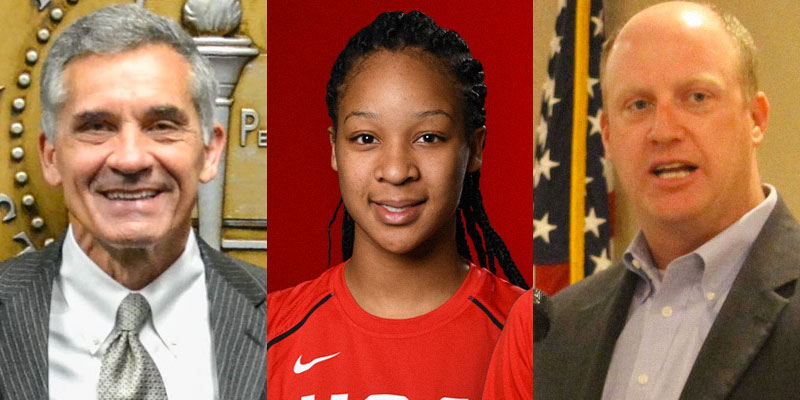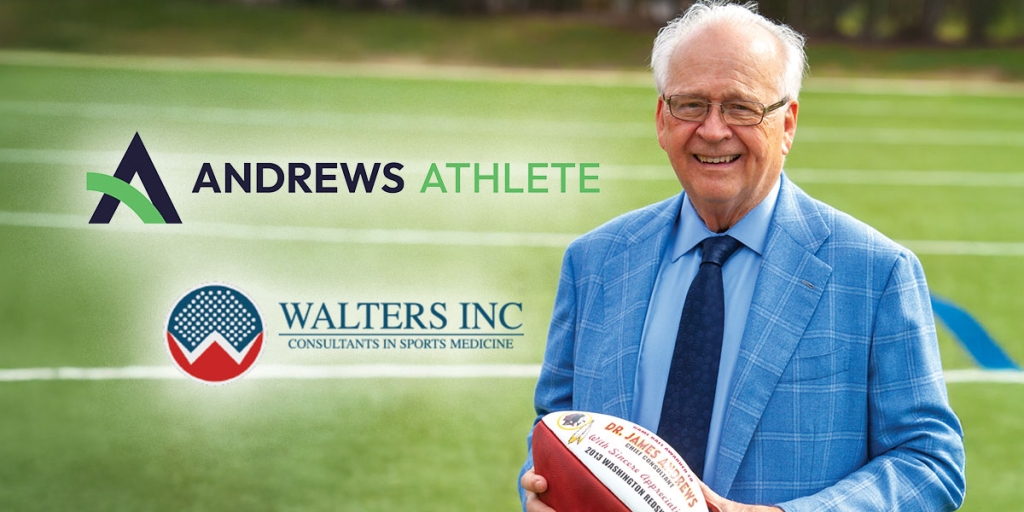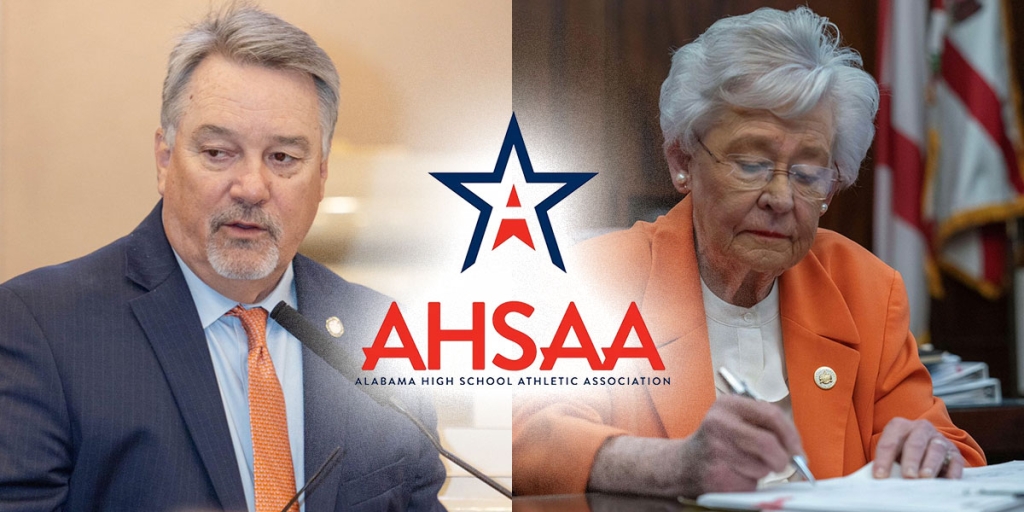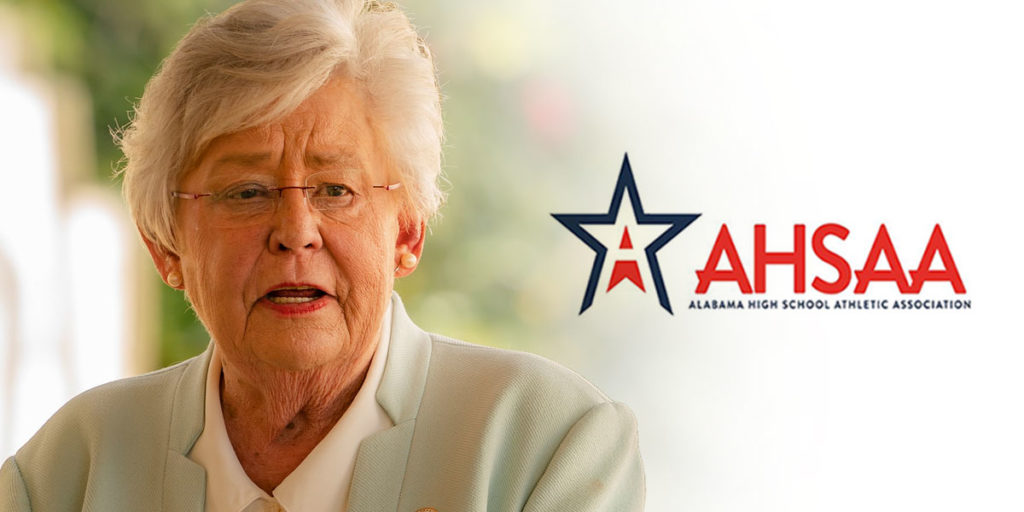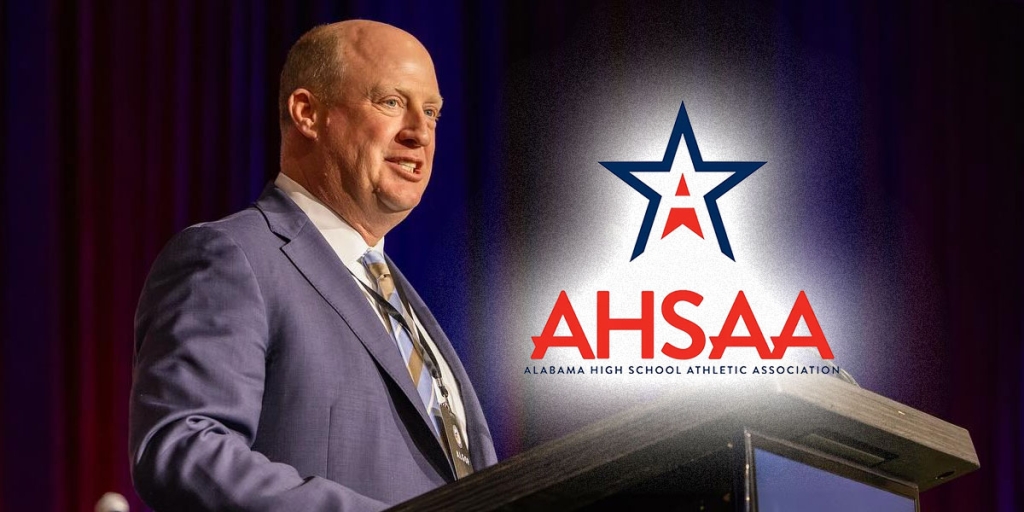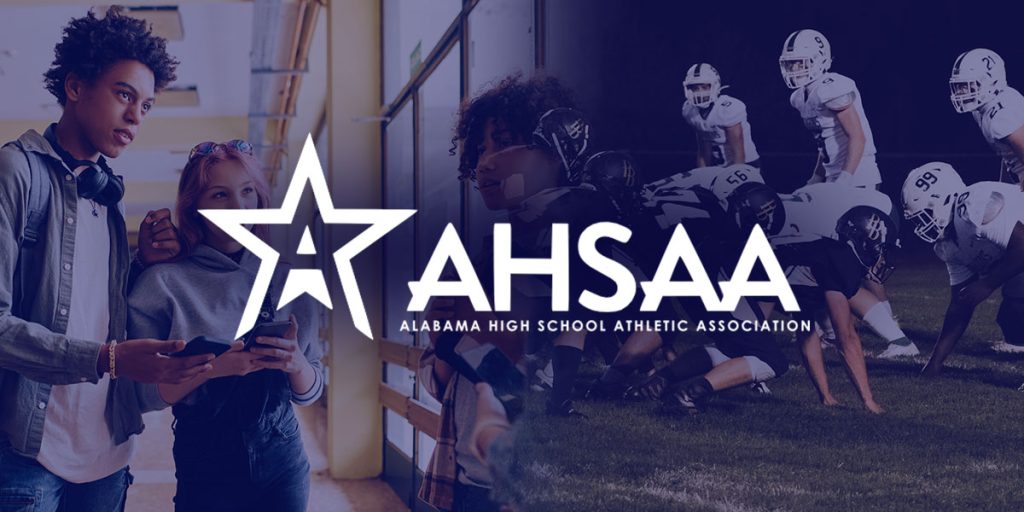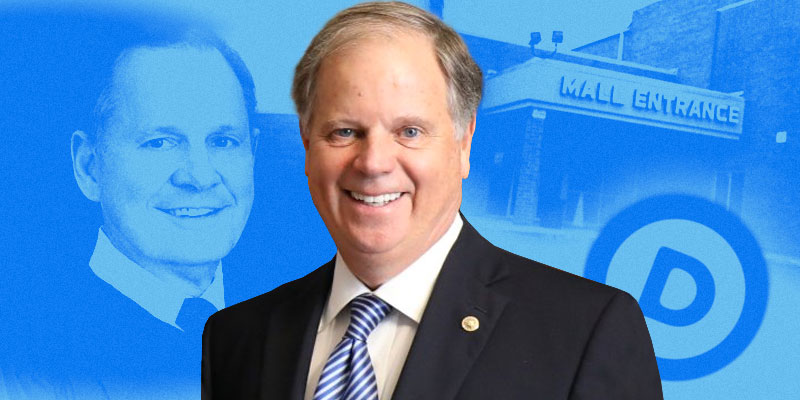State Senate President Pro Tem Del Marsh and Lieutenant Governor-elect Will Ainsworth on Monday called on the Alabama High School Athletic Association (AHSAA) to immediately reinstate Maori Davenport for the remainder of her senior season at Charles Henderson High School in Troy.
The USA Basketball U18 star and Rutgers signee was ruled ineligible by the AHSAA on November 30 after the association learned that the forward/center cashed a check for $857.20 that was mistakenly sent to her by USA Basketball as a stipend for lost wages and costs associated with representing her country over the summer.
On Thursday, ESPN picked up the story, which caused a national groundswell of support for Davenport and backlash against the AHSAA.
In a letter sent to AHSAA Executive Director Steve Savarese on Monday, Marsh called for Davenport’s immediate reinstatement.
The letter read as follows:
Dear Mr. Savarese:
As you are aware, when I learned of Maori Davenport being ruled ineligible to participate in her senior basketball season, I was outraged and took it upon myself to investigate this matter.
Having spoken with you and other interested parties on this matter over the weekend, I understand that the Alabama High School Athletic Association Board issued their ruling on Ms. Davenport’s eligibility based on a set of facts as they were presented at the time.
I have been made aware that there has been new evidence presented in this matter and am hereby calling on you to ask the Chairman to reopen this investigation AND reinstate Ms. Davenport’s eligibility pending the outcome of this investigation.
After the release of the letter, Ainsworth took to social media to back Marsh’s stance.
I support @SenatorDelMarsh on this 100%. It’s time to reinstate Maori Davenport immediately. https://t.co/6YhxjKseWI
— Will Ainsworth (@willainsworthAL) January 7, 2019
AHSAA comments
Amid the wave of blowback over their decision the AHSAA on Monday released a statement to explain their position and the set of facts that led to their decision.
In this statement by AHSAA Central Board of Control President Johnny Hardin, he doubled down, declaring that no exceptions should be made to association rules and confirming that Davenport is being punished for the mistakes of others.
“No one (including USA Basketball or CHHS) disputes the Amateur Rule was violated,” Hardin outlined in the beginning of his statement.
He detailed, “On August 15, 2018, USA Basketball paid the student $857.20 for lost wages while participating with the USA Basketball team over the past summer. Neither USA Basketball, the student’s parents, the student’s coach, nor CHHS administration reported the student had received the check until three months later, (specifically 91 days). During this time, the student played in several games. The AHSAA Amateur Rule states in part ‘A student cannot accept payment for loss of time or wages while participating in athletics as part of expenses . . . A student who has lost his/her amateur standing may be reinstated after the lapse of one high school season for the sport in which he/she has become professional . . .’”
“The check ($857.20) paid to the student was dated August 15, 2018, and endorsed by the student and posted to the student’s bank account on August 27, 2018. The student’s mother sent USA Basketball a check in the same amount three months later on November 28, 2018,” Hardin said.
November 28 was reportedly when USA Basketball realized its mistake. At that time, they notified Henderson High School in Troy, the AHSAA and Davenport. Davenport then sent the money back and self-reported the incident (her mother notified the AHSAA on her behalf).
Additionally, the AHSAA is contending that the player be held to account for her coach and her mother’s respective backgrounds with the AHSAA.
“The student’s mother is a certified AHSAA Basketball Coach; therefore, she is required to uphold current AHSAA bylaws and rules, including the Amateur Rule quoted above. Furthermore, the Head Girls’ Basketball Coach at CHHS is a former member of the AHSAA Central Board of Control; thus, she should not only appreciate the importance of knowing and following the AHSAA bylaws and eligibility rules but also understand how imperative it is to consistently uphold the same rules,” Hardin asserted.
Hardin also defended the embattled AHSAA executive director, Savarese. National basketball and media figures have called into question Savarese’s job safety, with state Rep. Chris England (D-Tuscaloosa) joining the fray on Monday.
“Has anyone heard from Steve Savarese? He is flat out wrong here. Do the right thing Mr. Savarese. Maori Davenport should be reinstated immediately. If this is how you do your job, then maybe you shouldn’t have it,” England tweeted.
In the defense, Hardin stated, “Steve Savarese, as AHSAA Executive Director, made the eligibility ruling based upon the plain language of the Amateur Rule. As Executive Director, Mr. Savarese does not have the authority to change a rule. Rather, as Executive Director, his job is to apply the rules as written.”
Throughout his lengthy statement, Hardin made clear that the AHSAA strictly wants “the rules as written” applied. Savarese’s decision to do so was upheld unanimously by two AHSAA appellate boards.
“Following Mr. Savarese’s ruling, the school appealed to both appellate levels for the AHSAA. First, to the District 2 Board – affirmed by unanimous vote of the 4-member Board. Next, to the Central Board of Control – affirmed by unanimous vote of the 15-member Board which represents the entire State,” Hardin detailed. “Thus, this ruling was affirmed by the Board that under the AHSAA Constitution has complete and final jurisdiction over all questions of the Constitution and Bylaws or other facts appealed to it by a member school. Mr. Savarese was not present at the District appeal or during deliberation at the Central Board hearing. To be clear, this ruling was affirmed by the Central Board of Control and as Executive Director, Mr. Savarese does not have the authority to change or reverse a ruling made by the Central Board.”
If this was not enough to throw the onus off of the executive director of the association, Hardin went a step further, casting blame on all of the member schools for writing the rule in the first place instead of the people charged with its enforcement.
Hardin pleaded, “Also, please remember, the AHSAA member schools, not Mr. Savarese nor the AHSAA staff, write and approve the AHSAA eligibility rules which include the Amateur Rule.”
“The AHSAA Legislative Council has the authority each year at the annual meeting to amend the AHSAA Constitution and Rules. Meaning, each year the member schools (including Charles Henderson High School) have an opportunity to change a rule or create new ones. The penalty for violating the Amateur Rule has not been amended in at least the past 10 years with Mr. Savarese as Executive Director. Which, in turn, means each year Charles Henderson High School has agreed to the penalty for violating this Rule without comment or pursuing any kind of rule change within the legislative process,” he continued.
Hardin then turned his aim to the principal of Charles Henderson High School.
“Each year these Rules are reviewed multiple times during AHSAA sponsored and hosted seminars with the member schools and are available on the AHSAA website. A review of all Summer Conference and Principals’ and Athletic Directors’ Conference attendees show the Principal for Charles Henderson High School has not attended the 2016, 2017, or 2018 Summer Conferences or the 2016, 2017 or 2018 Principals’ and Athletic Directors’ Conferences,” Hardin remarked.
He then circled back to the assertion that no exceptions can be made to AHSAA rules.
“The stories and comments being circulated throughout the media and social networks are asking that an exception be made to the Amateur Rule because it was not the student’s fault; the fact the money was repaid, and that the student is an exceptional athlete and will miss her senior year. However, if exceptions are made, there would no longer be a need for an Amateur Rule,” Hardin claimed.
He continued, “The Rules are applied equally to ALL athletes. Furthermore, most eligibility violations are the result of adults failing to follow the rules. Here, the student’s mother as a certified AHSAA Coach should know the rules; the School’s Principal should know the rules, the Head Basketball Coach, as not only a Coach but also as a former Central Board member, should know the rules.”
Hardin also emphasized another reason for ending Davenport’s senior season, saying that the AHSAA did not want to create a loophole for other athletes to exploit in the future.
“Another point not mentioned in the public stories being circulated is that creating an exception to this Rule would have provided an avenue to exploit student-athletes by providing an opportunity for students to receive money and prizes for athletic participation and if discovered, state they didn’t know the rule, thus allowing them to return the items and retain eligibility,” Hardin outlined. “This is why AHSAA stresses to the leadership of its member schools how important it is to know the rules and advise their students regarding all rules that affect eligibility. Informing student-athletes of the consequences for violating such rules is the responsibility of the adults supervising them.”
Hardin then moved on to criticizing USA Basketball specifically.
Part of his statement reads as follows:
“It should be pointed out that a high school student from Illinois also received payment from USA Basketball. However, that student called her high school once she received the check and then returned the check to USA Basketball without cashing or depositing it. Here, the student received the check, endorsed it and it was posted to her bank account. Three months later, AHSAA was notified and the monies returned to USA Basketball.
A high school student from Missouri has also been ruled ineligible for this basketball season for accepting the lost wages payment from USA Basketball.
USA Basketball never called Charles Henderson High School or AHSAA to ask if payment for lost wages violated AHSAA rules until November which was three months after payment was made and accepted by the student. This was not a clerical error but a complete lack of administrative oversight on the part of USA Basketball, thus possibly rendering multiple student-athletes ineligible as most states have an Amateur Rule.”
One glaring omission in Hardin’s statement was this unanswered question looming in the air: What if Davenport – and USA Basketball – had not notified the AHSAA after they realized their mistake?
To observers, unanswered, it seems that the AHSAA is saying that admitting a mistake and returning the money deserves no flexibility in the application of the “rules as written,” while hiding the payment (lying) would have allowed Davenport to play her senior season.
Hardin ended his statement with praise for Savarese and the AHSAA staff for upholding its “Constitution and Bylaws.”
“Lastly, misstated facts and placing Mr. Savarese’s email on social media has led to Mr. Savarese and the AHSAA staff receiving threatening, irresponsible, and vulgar communications,” Hardin said. “We, as the Central Board of Control, stand by the staff of the AHSAA and thank them for their unwavering support of the AHSAA mission, educational athletics, as well as the AHSAA Constitution and Bylaws.”
Sean Ross is a staff writer for Yellowhammer News. You can follow him on Twitter @sean_yhn




